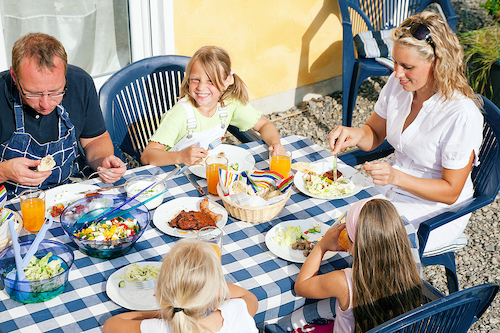November 28, 2024
by Elizabeth Pratt

COVID lockdowns caused many families to eat more meals at home, and it may have had an unexpected benefit.
Research published in the journal Couple and Family Psychology: Research and Practice found that families who ate together more often during the COVID-19 pandemic experienced in increase in quality family time during dinners.
[More]
February 29, 2024
by Elizabeth Pratt

You’ve been invited to a party that you’re dreading. But you feel rude declining the invitation.
But there’s good news: research published in the Journal of Personality and Social Psychology suggests that people often overestimate the social consequences of saying no.
[More]
August 31, 2022
by Elizabeth Pratt

Having a partner was more beneficial at avoiding loneliness during the first wave of COVID-19 than having children.
Research published in the European Journal of Ageing found that whilst those without children and those without a partner were more likely to be lonely, those without a partner underwent a notable shift in their loneliness in the early stages of the pandemic.
[More]
May 30, 2022
by Elizabeth Pratt

People may take fewer COVID-19 safety precautions and feel less vulnerable to infection when around friends.
Researchers from Universidad Carlos III de Madrid in Spain were inspired to undertake the research after realising they felt safer when with close friends.
[More]
November 30, 2021
by Elizabeth Pratt

Providing social support to others could be good for your health.
A study published in Brain, Behavior and Immunity by researchers at Ohio State University found that those who have positive social relationships in which they are available to provide support to others had lower levels of inflammation.
[More]
February 18, 2021
by Elizabeth Pratt

Life in a pandemic for married couples can lead to feelings of sadness and anger.
Many couples across the country are co-existing at home for extended periods due to COVID-19.
Now, researchers have found the more a person feels their spouse disrupts their daily lives, the more they view their relationship as turbulent.
[More]
July 7, 2020
by Patricia Tomasi

A new study published in the Journal of Child Development looked at the how perceived psychological control in early adolescence predicts lower levels of adaptation into mid-adulthood. Researchers were hoping to understand the long-term associations with overly controlling parenting in adolescence.
[More]
April 29, 2020
by Elizabeth Pratt

By some predictions, the COVID19 pandemic will cause the worst financial crisis in the US since the Great Depression.
Already across the United States many are experiencing pay cuts and job losses, and for couples this may mean a lot of pressure on romantic relationships.
Whilst financial struggles are never easy, research from the University of Arizona has found that some couples are better prepared to cope with financial stress than others.
[More]
February 20, 2020
by Elizabeth Pratt

Break ups are never easy, but in the age of social media, they’re even more complicated.
That’s why a group of researchers from the University of Colorado Boulder set out to explore break ups in the age of Facebook.
[More]
December 31, 2019
by Elizabeth Pratt

As married couples get older and develop more chronic conditions the demands placed on them can lead to worsening mental health.
[More]